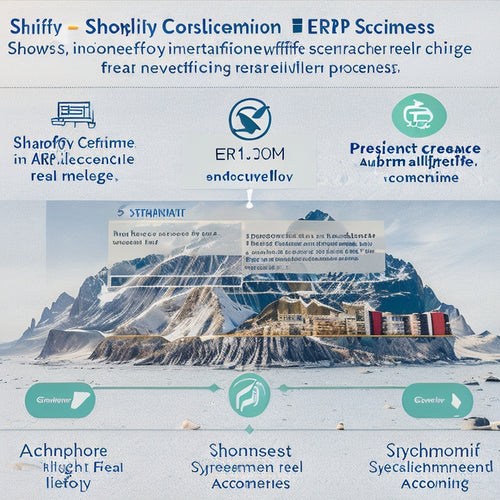
E-commerce Planner Excels in Revenue Growth
Share
An e-commerce planner excelling in revenue growth is a data-driven strategist who crafts and executes plans that drive profitability, customer satisfaction, and long-term success. By aligning business objectives with data-driven insights, they streamline decision-making and guarantee informed choices. Through continuous process improvements, they optimize profit margins, enhance overall business performance, and drive revenue growth. Effective market research skills uncover actionable insights, tailoring strategies to customer needs and tracking market trends. By orchestrating complex projects and leveraging team collaboration, they achieve business objectives, setting specific, measurable, and achievable targets. To reveal the full potential of e-commerce planning, it is essential to understand the intricacies of these strategies.
Key Takeaways
• An e-commerce planner excels in revenue growth by optimizing profit margins through strategic pricing and cost reduction.
• Data-driven analysis is crucial in identifying areas for improvement and informing revenue growth strategies.
• Effective market research skills help tailor strategies to customer needs, driving revenue growth and profitability.
• Streamlined operations and efficient project management are vital for the success of e-commerce initiatives and revenue growth.
• Aligning business objectives with data-driven insights ensures that revenue growth strategies are informed and achievable.
Strategic Planning for Success
Leveraging expertise in strategic planning and continuous process improvements, e-commerce planners excel in driving revenue growth by aligning business objectives with data-driven insights and actionable strategies. This involves streamlining the decision-making process, guaranteeing that every choice is informed by accurate data and aligned with business goals.
By optimizing operational efficiency, e-commerce planners can eliminate waste, reduce costs, and allocate resources more effectively. Through strategic planning, they can identify areas of improvement and implement targeted solutions, resulting in improved customer satisfaction, increased productivity, and enhanced overall performance.
Revenue Growth Through Profits
By optimizing profit margins through strategic pricing, inventory management, and supply chain efficiency, e-commerce planners can drive significant revenue growth and enhance overall business performance.
This approach enables profit maximization, as every dollar saved or generated has a direct impact on the bottom line.
Through data-driven analysis, e-commerce planners can identify areas for improvement and implement changes that yield tangible results.
By streamlining operations and reducing waste, revenue optimization becomes a natural byproduct.
By focusing on profit-driven strategies, e-commerce planners can create a sustainable competitive advantage, driving long-term growth and success.
Effective Market Research Skills
E-commerce planners who possess effective market research skills can uncover actionable insights that inform strategic business decisions, driving revenue growth and optimizing profitability.
By conducting thorough competitive analysis, e-commerce planners can identify market gaps and opportunities, enabling data-driven decisions that stay ahead of the competition.
Additionally, customer segmentation research allows planners to tailor their strategies to specific customer needs, increasing customer satisfaction and loyalty.
Effective market research skills also enable planners to track market trends, anticipate changes, and adapt quickly to shifting consumer behaviors.
E-commerce Project Management
Effective project management is vital to the success of e-commerce initiatives, as it enables planners to orchestrate complex projects from conception to delivery, ensuring timely and within-budget completion that drives revenue growth and profitability.
By leveraging team collaboration, e-commerce planners can bring together cross-functional teams to deliver online components of category strategy, making recommendations on assortments and promotions that drive sales. Data analysis plays an essential role in informing these decisions, providing insights into customer behavior and market trends.
Achieving Business Objectives
Seventy-five percent of successful e-commerce initiatives depend on the planner's ability to translate business objectives into actionable strategies that drive revenue growth, increase profitability, and enhance customer satisfaction. A well-crafted business strategy is essential in achieving these objectives.
By conducting thorough revenue analysis, e-commerce planners can identify areas of improvement and optimize their strategies to maximize returns. This involves setting specific, measurable, and achievable targets, as well as establishing key performance indicators to track progress.
Frequently Asked Questions
How Do You Prioritize Tasks With Competing Deadlines and Multiple Stakeholders?
"By harmonizing stakeholder expectations, I orchestrate task prioritization, leveraging time management expertise to navigate competing deadlines, ensuring seamless communication and calibrated deadline management, ultimately yielding efficient outcomes and mitigating potential risks."
What Strategies Do You Use to Stay Current With Industry Trends and Developments?
To stay current with industry trends and developments, I leverage market analysis and competitive research to identify opportunities, threats, and emerging patterns, ensuring data-driven insights inform strategic decisions and drive business growth.
Can You Describe Your Experience With Data-Driven Decision-Making Tools?
Through rigorous data analysis and optimization, I inform decision-making, leveraging tools like Adobe Analytics to track performance and drive strategic growth, ensuring data-driven insights propel business forward while mitigating risk.
How Do You Handle Conflicts or Disagreements Within Cross-Functional Teams?
When addressing conflicts within cross-functional teams, I employ active listening, open communication, and empathy to resolve issues. By fostering a collaborative environment, I guarantee timely and effective conflict resolution, promoting positive team dynamics and driving results-oriented outcomes.
What Steps Do You Take to Ensure Continuous Learning and Professional Growth?
To guarantee continuous learning and professional growth, I engage in regular self-assessment, seeking feedback from colleagues and mentors, and prioritize attending industry conferences, like the National Retail Federation's annual event, to stay updated on best practices and trends.
Related Posts
-

Streamlining Your Business: The Power of Shopify ERP Integration
The integration of Shopify with ERP software offers a powerful solution for businesses, automating various processes...
-

Does Shopify Have SEO Optimization
This article examines the extent to which Shopify offers SEO optimization capabilities. The objective of this analys...
-

Boost Conversions With a Popup App for Your Shopify Store
The utilization of popup apps for Shopify stores has become a prevalent practice in the pursuit of enhancing convers...


